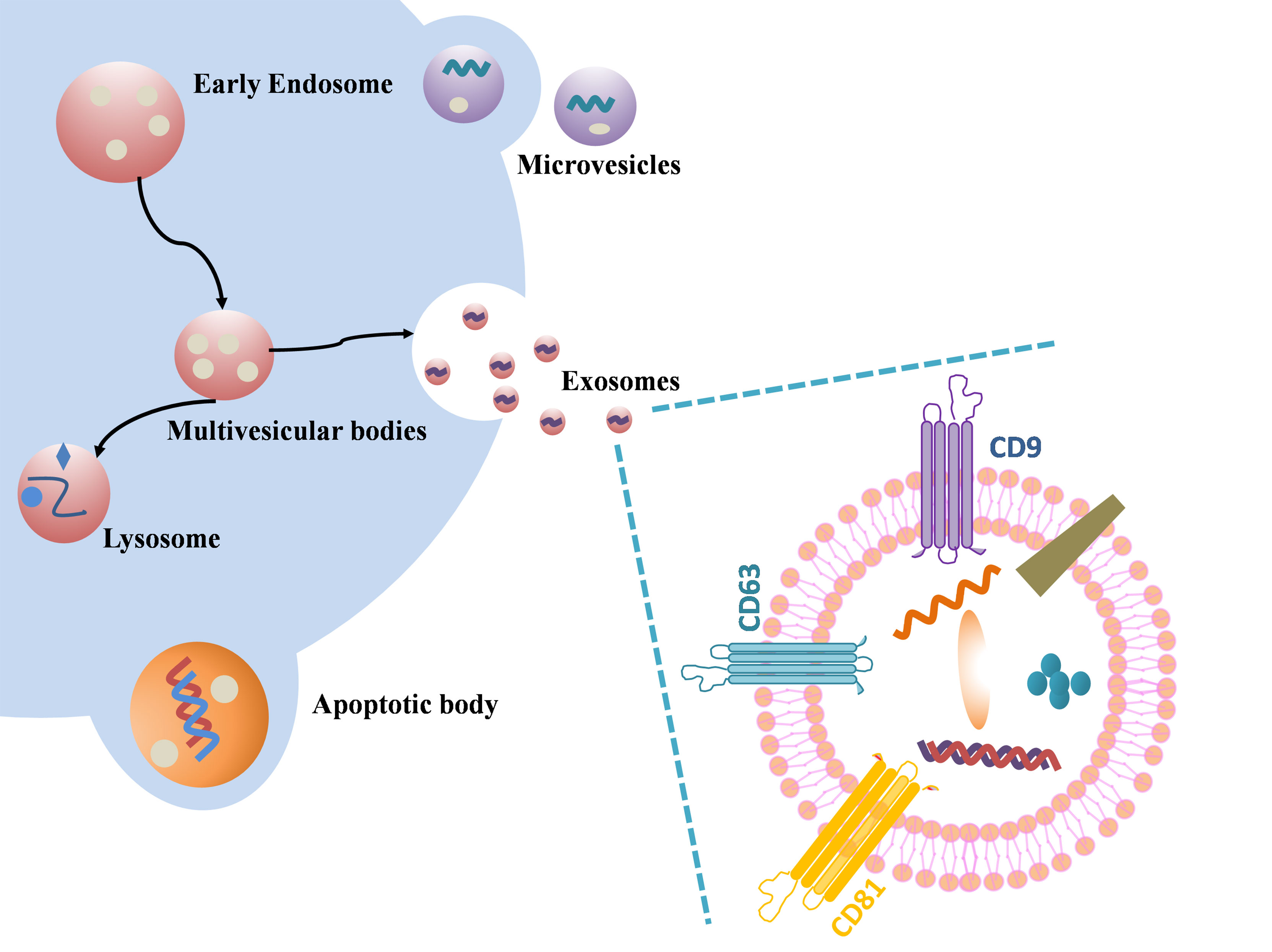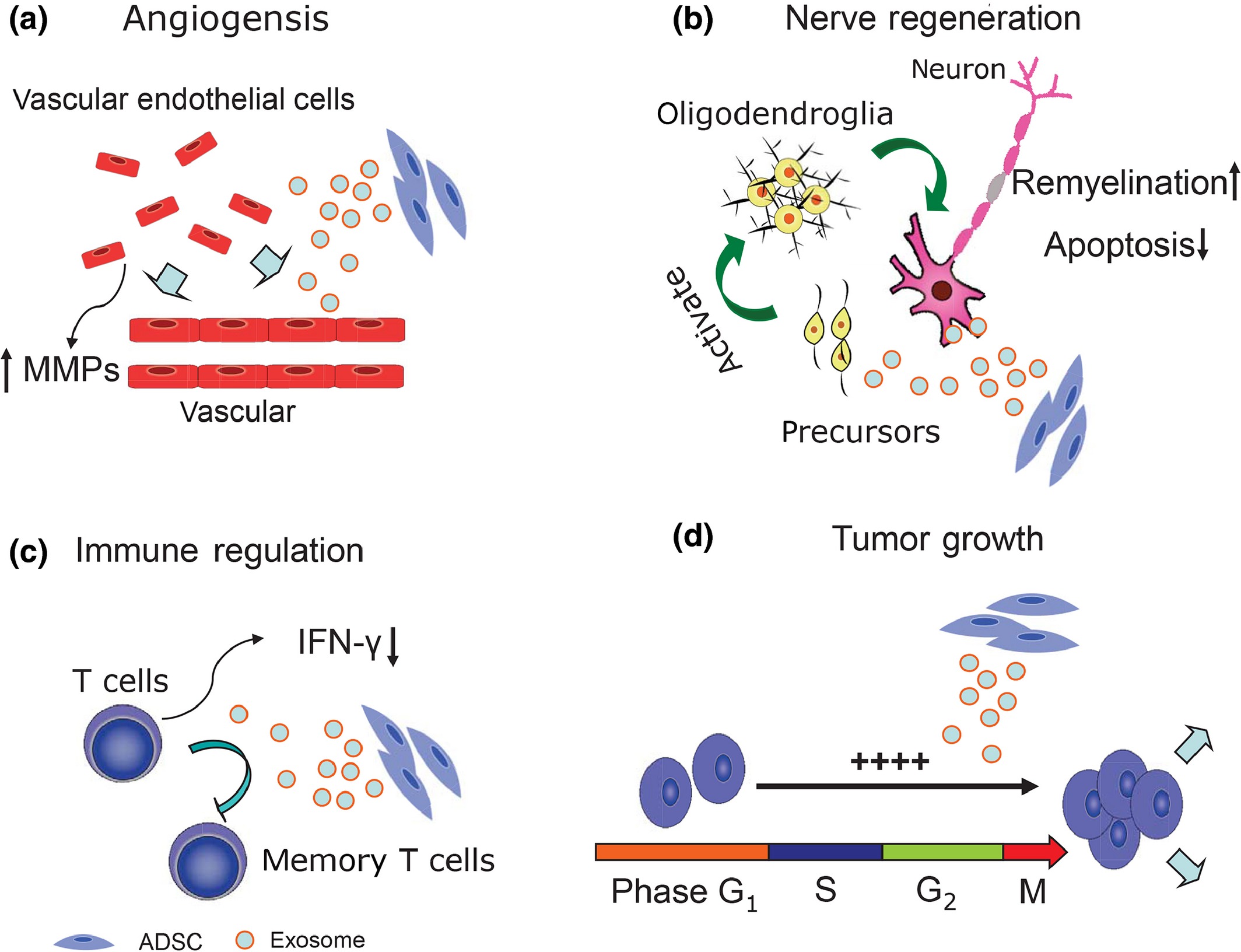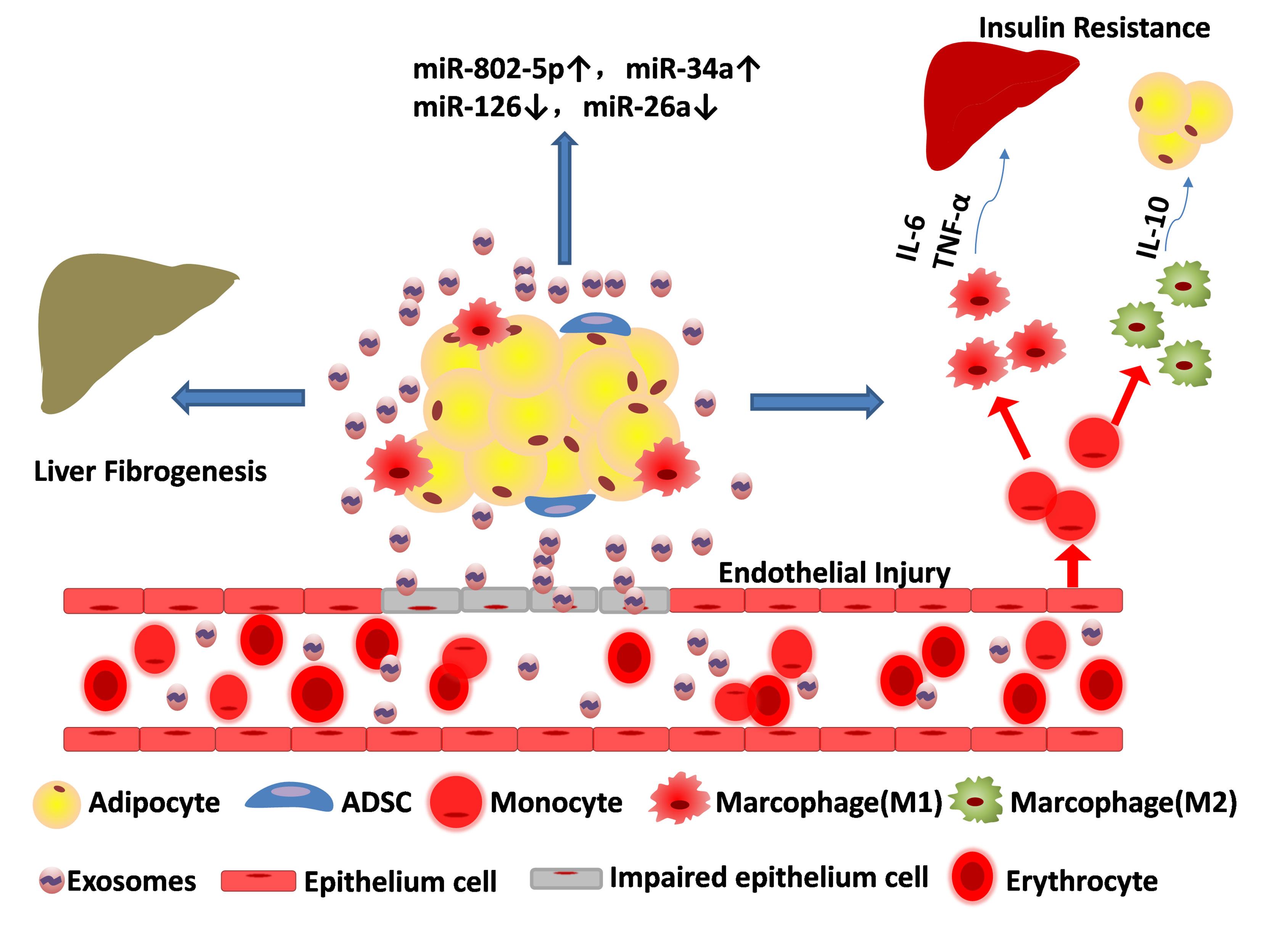Tissue Exosome Related Research Service
Tissue exosome related research focuses on the extraction of exosomes from various tissues and the analysis of their critical roles in intercellular communication, immune regulation, and disease progression. Exosomes are small vesicles secreted by cells that carry diverse biomolecules (such as proteins, RNA, and lipids) and transmit information through body fluids, participating in both physiological and pathological processes of tissues. This service enables the efficient extraction of tissue-derived exosomes and utilizes advanced technologies such as high-resolution mass spectrometry, RNA sequencing, and nanoparticle tracking analysis (NTA) to investigate their molecular composition and functional roles in disease.
Tissue exosome related research service is widely applied in tumor research, immunology, neurodegenerative diseases, cardiovascular diseases, and other fields. It holds particular value in disease diagnosis, personalized therapy, and biomarker development. By studying the characteristics of tissue-derived exosomes, this service provides critical data support for early disease diagnosis, treatment monitoring, and the optimization of drug delivery systems.

Mei, R Y. et al. Frontiers in Endocrinology, 2022.
Figure 1. Schematic IIlustration of Exosome Biogenesis and Component.
Services at MtoZ Biolabs
Based on advanced technology platforms such as high-resolution mass spectrometry (LC-MS/MS), RNA sequencing, nanoparticle tracking analysis (NTA), and transmission electron microscopy (TEM), the tissue exosome related research service provided by MtoZ Biolabs enables the extraction and analysis of tissue-derived exosomes. Through these platforms, comprehensive evaluations of the molecular composition, particle size, morphology, and functional characteristics of exosomes can be performed, ensuring the acquisition of high-quality experimental data. This service can be divided into the following aspects:
1. Tissue Exosome Extraction Service
MtoZ Biolabs provides efficient tissue exosome extraction services, enabling the isolation and purification of exosomes from various tissue sources such as tumor, neural, and cardiovascular tissues. Techniques including ultracentrifugation, density gradient centrifugation, and immunoaffinity capture are employed to ensure high purity and biological activity of the exosomes. This service is suitable for downstream analyses requiring high-quality exosome samples, such as proteomics and RNA profiling.
2. Tissue Exosome Analysis Service
Following exosome extraction, MtoZ Biolabs offers comprehensive analytical services, including proteomic analysis, RNA sequencing, particle size measurement, and morphological evaluation. By leveraging advanced technologies such as high-resolution mass spectrometry (LC-MS/MS), RNA sequencing, nanoparticle tracking analysis (NTA), and transmission electron microscopy (TEM), the service enables in-depth investigation of the molecular composition, functional characteristics, and biological roles of exosomes in various diseases, providing reliable data support for both research and clinical diagnostics.
3. Tissue Exosome Functional Validation Service
This service investigates the functional roles of tissue-derived exosomes in specific biological processes such as immune regulation, tumor metastasis, and cell signaling through in vitro assays or animal models. Utilizing techniques like flow cytometry (FACS) and confocal microscopy, MtoZ Biolabs provides in-depth validation of exosomal functions, helping to uncover their underlying mechanisms in disease progression.
4. Tissue Exosome Labeling and Tracking Service
MtoZ Biolabs offers exosome labeling and tracking services using fluorescent dyes or virus-mediated labeling strategies. These methods enable real-time tracking of exosomes in both in vitro and in vivo environments. The service facilitates studies on the dynamic distribution, cellular uptake, and functional trafficking of exosomes, making it ideal for applications in drug delivery, immune modulation, and disease modeling.
Service Advantages
1. Efficient Extraction and Purification
MtoZ Biolabs employs optimized separation techniques, such as ultracentrifugation and density gradient centrifugation, to ensure the efficient extraction of exosomes from various tissue sources while maintaining their biological activity. This makes them suitable for downstream analyses and research.
2. Comprehensive Analytical Technology Platform
By integrating advanced technologies such as high-resolution mass spectrometry (LC-MS/MS), RNA sequencing, and nanoparticle tracking analysis (NTA), MtoZ Biolabs provides clients with comprehensive exosome composition analysis, ensuring high-quality and accurate data to support in-depth biological research.
3. Customized Services and Technical Support
According to diverse research needs, MtoZ Biolabs offers personalized exosome extraction and analysis solutions. With an experienced technical team, we provide comprehensive technical support and tailored protocols to ensure the successful achievement of research objectives.
4. High Sensitivity and Accurate Functional Validation
Through in vitro experiments and animal model studies, MtoZ Biolabs accurately validates the roles of exosomes in various biological processes, delivering reliable experimental data to support research in disease mechanisms, drug delivery, and related fields.
Applications
1. Cancer Research and Immune Regulation
Tissue exosome related research service can be applied to the study of the tumor microenvironment. By analyzing tumor-derived exosomes, this service helps uncover their roles in tumor immune evasion and metastasis, while also assessing their potential in immune modulation, thereby supporting the advancement of immunotherapy.
2. Early Disease Diagnosis and Biomarker Discovery
By exploring the characteristics of tissue-derived exosomes in various diseases such as neurodegenerative and cardiovascular disorders, this service aids in the identification of potential early diagnostic biomarkers, promoting the progress of precision medicine.
3. Research and Optimization of Drug Delivery Systems
In the field of drug delivery, exosome research enables the investigation of their distribution and delivery efficiency as drug carriers, which helps optimize the design of delivery systems and improve therapeutic outcomes.
4. Intercellular Communication and Signal Transduction Studies
Tissue exosome related research service can be applied to study the role of tissue-derived exosomes in intercellular communication, helping to elucidate how exosomes regulate physiological processes through molecular transport and facilitating new drug development and disease mechanism research.
Case Study
1. Physiological and Pathological Impact of Exosomes of Adipose Tissue
The aim of this study is to investigate the impact of adipose tissue-derived exosomes on cells and tissues during physiological and pathological processes. The research subjects are exosomes secreted by adipose tissue. The study methods include the isolation and purification of exosomes, analysis of protein and RNA components, and validation of the biological functions of exosomes through cell culture and animal models. The results demonstrate that adipose tissue-derived exosomes can regulate various physiological processes—such as metabolism, immune response, inflammatory response, and intercellular communication—by transferring molecules including miRNAs, proteins, and lipids. In addition, adipose tissue exosomes play significant roles in metabolic diseases such as obesity and diabetes, as well as within the tumor microenvironment. They may influence disease onset and progression by modulating immune cell activity and promoting tumor cell proliferation and metastasis. The study concludes that the roles of adipose tissue-derived exosomes in both physiological and pathological states merit further investigation, and they may serve as novel biomarkers or therapeutic targets for disease diagnosis and treatment in the future.

Zhang, Y. et al. Cell Proliferation, 2016.
Figure 2. Functions of Adipose Tissue Exosomes.
2. Role of Adipose Tissue Derived Exosomes in Metabolic Disease
The aim of this study is to explore the role of adipose tissue-derived exosomes in metabolic diseases, particularly their impact on obesity, diabetes, and related metabolic disorders. The study subjects are exosomes derived from adipose tissues under different physiological conditions. The methods include isolation and purification of exosomes, component analysis, as well as in vitro cell experiments and animal models. The results show that adipose-derived exosomes regulate metabolic processes by carrying miRNAs, proteins, and lipid molecules, and are involved in physiological mechanisms such as lipid metabolism, insulin sensitivity, and inflammatory responses. Especially in obesity and diabetes models, adipose-derived exosomes have a significant impact on insulin resistance and immune responses within adipose tissue, possibly promoting the onset and progression of metabolic diseases by modulating interactions between immune cells and adipocytes. The study concludes that adipose tissue-derived exosomes play an important role in the development and mechanisms of metabolic diseases and hold potential as diagnostic or therapeutic targets in the future.

Mei, R Y. et al. Frontiers in Endocrinology, 2022.
Figure 3. Adipose Tissue-Derived Exosomes Result in Metabolic Disorders.
FAQ
Q1: Will the Extraction of Tissue-Derived Exosomes Affect their Structure and Function?
A1: MtoZ Biolabs uses optimized isolation and purification methods, such as ultracentrifugation and density gradient centrifugation, to maximally preserve the biological activity and structural integrity of exosomes. All extraction steps are precisely controlled to ensure that exosome functions remain unaffected, making them suitable for downstream analysis and functional validation.
Q2: Can Clients Select Customized Exosome Analysis Projects?
A2: Yes, MtoZ Biolabs offers personalized custom services and can tailor exosome extraction and analysis plans according to the client’s research needs. Whether it's proteomics, RNA analysis, or functional validation, we provide targeted services based on specific requirements.
How to order?







